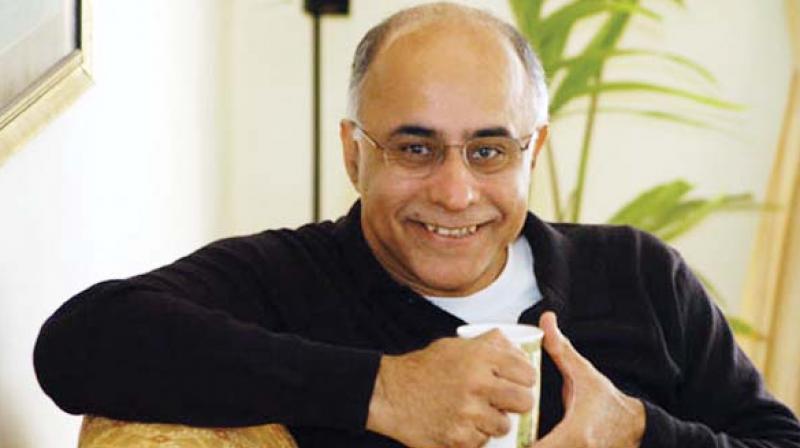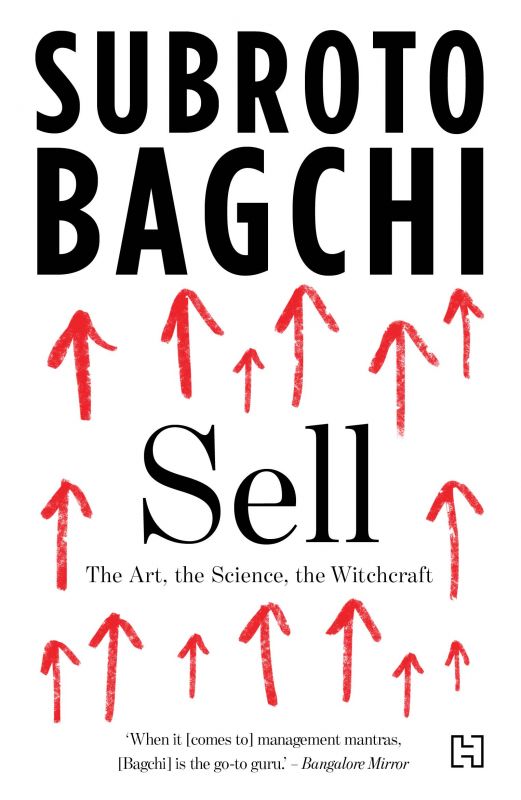Today, authenticity is crucial but in short supply'
A question of answers with Subroto Bagchi.

When Subroto Bagchi, founder, Mindtree, first made his foray into sales back in the 1980s, the world was a very different place. Information - or having more than anybody else - was the salesperson's greatest strength. His new book, Sell: The Art, the Science, the Witchcraft, describes the tidal wave of change that has taken over the world of sales: The buyer’s information can rival or surpass that of a salesperson, whose job is now to help remove the clutter. Bagchi talks to Aksheev Thakur about making an honest pitch at a time when a company’s reputation, philosophy and values mean more to the buyer than the product or service on offer.
In the introduction of the book, you say that selling is seen as an act an invasion even by professionals...
Many people have negative views on selling; mistakenly so. In reality, a good sales person is a joy. Take, for instances, your daily experiences with your vegetable vendor, fishmonger or bookseller. When you walk into the store, you expect them to know you, smile at you, help you select what you want, suggest (cross sell) something you didn’t come to buy. You want friendly expertise, heightened choices and perhaps a beautiful surprise after. How does this differ from staring down a supermarket aisle? It is the salesperson.
This point isn’t restricted to your friendly neighbourhood grocer or hairdresser. Think instead of a big value purchase, say, a new apartment or a multi-billion B2B transaction for your corporation and suddenly, you understand the value of a good salesperson. Whether we’re buying daily household items or a making a billion dollar transaction, our expectations from the experience are the same.
Still, we continue to cringe at the idea of selling. It’s time we shed those notions and opened our eyes to the concept. It isn’t something to be wary of, it teaches you outside-in thinking; you pay attention to what’s important to someone else, their stated and unstated needs and help them make a definitive choice.
What has changed in the world of selling since the 1980’s, when you first entered it?
As my book tells you, a lot has changed on the surface. And still, at the core, things remain the same. When I started my career, the Internet didn’t exist and global trade was insignificant. Today, the act of buying and selling is technology-enabled. Also, we buy and sell globally. Both factors have had cascading impacts. Take technology first. Because of it, the primary role of a salesperson is no longer to provide information on a product to a buyer. In the old world, your primacy came from superior knowledge. Todays buyers go online before they dress up for work each morning. These aspects place unusual new power equations in the buyer’s hands. The primary role of the seller has gone from providing basic information to taking on an advisory role that helps the buyer sift through information and separate clutter from what is relevant.
Now, let’s talk about buying and selling globally. Much has changed due to cross border transactions – the book talks of some of these. Among them is the aspect of cross-cultural issues, to which we need to turn our attention. In addition, buyers all over are looking at thigns that have nothing to do with your product or service per se. They want to know who you are, your organisational philosophy and your culture. In short, what do you stand for? They want to do business with people with similar values. Your values, your business practices – these hold as much relevance to the buyer as the product on offer.
 Sell: The Art, the Science, the Witchcraft; publisher: Hachette India; formats: Hardcover, Kindle
Sell: The Art, the Science, the Witchcraft; publisher: Hachette India; formats: Hardcover, Kindle
Does the art of selling depend mostly on communication skills and skilled rhetoric? Or are clients able to see through false promises and tall claims?
Of course, as customers we expect all our trusted advisors, from doctors to lawyers to bankers to be articulate. We seek that quality in particular, in sales people too. Earlier, salespeople paid a lot of attention to preparing for, and doing well in face-to-face meetings. But today, the idea of “fluency” has become more expansive. Do you feel fluent when I check you on social media? Do you feel fluent in your written communication? A lot of client meetings today happen via video or audio conferences and not everyone comes across effective or fluent all the time because different forms of interaction require different capabilities and practice.
And no, charm is nowhere near as important as authenticity. In today’s world, authenticity is in short supply and hence, in high demand.
The idea of lies and fake promises are probably reminiscent of the mendicant selling snake oil outside the Red Fort. Every salesperson knows the risks of emulating him because you depend so much on both repeat business and word-of-mouth. Still, they conveying this sincerity is the challenge because of the belief that salespeople are, by virtue of their profession, embellishers. They are, but to a very small degree!
You refer to Scott Staples, who says the analogue days were better. Do you share the same view?
Scott is a classicist at heart. But wait a minute, in this comment, he actually means that the analogue days had some perks. By making this remark, he is calling out the risk of being digital of losing the human touch. Scott always said, never forget, at the end of the day, people buy from people.
What can the company lose if the promises made by the salesperson to its client cannot be delivered?
The risks are huge. Today, social media can reveal your ugly side to the world in an instant, when a corporation’s biggest asset is its reputation. It is one form of capital that, when dented, takes a long time to fix. Every sales person must look upon himself as a protector of the organization’s reputation. Sometimes, a well-meaning promise cannot be met for reason beyond the control of the salesperson. At those times, the salesperson must don the hat of being the customer-advocate inside the organization and not seek shelter behind organizational failure.
You say, “Never lose hope while making a deal.” How can a salesperson under tremendous pressure remain optimistic?
Pressure can’t be the excuse for embracing anxiety. Which professional has a stress-free life? We must always do our work with optimism and believe that there is a reasonable outcome for efforts well made.
How can a salesperson on the phone gauge his client’s response?
Through the kinds of questions being asked in response, the pauses and the silences. Don’t just jump into fielding the right answer for a question. Understand why the question is being asked at all. And as you communicate, listen to their silences. Short pauses at the right places signal deep contemplation that indicate serious interest. Like in love, silence can be golden.
What advice would you give to youngsters who lose heart when they fail to meet a target and face the threat of losing their jobs?
Missing your target happens to everyone on occasion. You don’t win every race. However, losing your job because you blew your target, calls for some deep reflection. Get professional advice on how to proceed. Are you a cricketer trying to play football? Understand your strengths and your weaknesses, get formal training and return to it every now and then. Read a LOT. If you want to be in sales, don’t jsut text or whatsapp. Read. Never stop that. Never give up role playing. It’s like a test cricket star practicing in the nets – he won’t ever stop doing that. And yes, look at the druids in your business, be a good apprentice.
What does it take to be a champion in selling?
Ah, for that, you must first meet a champion!

